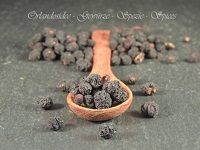
Pepper Lexicon — Category Overview
Welcome to our Pepper Lexicon: a chef-focused guide to Piper nigrum (black, white, green, red “fully ripe”) and select pepper relatives and look-alikes. Learn how origin, harvest stage, and processing shape aroma, heat and color—then choose the best pepper for every dish.
- Botany: mainly Piper nigrum (family Piperaceae)
- Core styles: black • white • green • red (ripe) • pepper mixes
- Specialties: long pepper, cubeb, voatsiperifery, pink “pepper”, Sichuan pepper (not true pepper)
- Use: crack fresh for aroma; add early for depth or finish for bright top-notes
Types of Pepper (at a glance)
- Black pepper: sun-dried unripe berries; pungent, woody, citrus-peel highs. Everyday all-rounder.
- White pepper: fully ripe berries, husk removed; cleaner heat, earthy/fermented notes—great in pale sauces.
- Green pepper: unripe, quickly dried or brined; fresh, herbal, mild heat; ideal for creamy sauces and steaks.
- Red (ripe) pepper: fully ripened and carefully dried; fruity sweetness plus warmth; superb for finishing.
- Specialty peppers: long pepper (spicy, warm, sweet), cubeb (peppery with balsamic/camphor lift), voatsiperifery (woody-citrus wild pepper).
- Look-alikes: pink “pepper” (Schinus spp.), Sichuan pepper (Zanthoxylum)—not Piper, different flavor/tingle.
Grinding & Technique
- Grind fresh: coarse for steaks and salads; medium for soups; fine for velvety sauces.
- Bloom gently: warm cracked pepper in butter/oil 10–20 s, then add liquid to spread aroma.
- Timing: early addition = round warmth; end of cooking = vivid pepper bouquet.
- Mix smart: blend black + green for brightness; add a few red berries for fruity sweetness.
Pairing Guide
- Black: red meats, tomato sauces, roasted veg, hearty soups.
- White: poultry, fish, creamy soups/sauces, mashed potatoes.
- Green: steak au poivre, cream sauces, seafood, fresh cheeses.
- Red (ripe): carpaccio, tuna, soft cheeses, fruit (strawberries, figs).
- Specialties: long pepper for braises/desserts; cubeb for marinades; voatsiperifery for game and mushrooms.
Storage & Freshness
Keep whole peppercorns airtight, cool, dry and away from light. Grind just before use. Whole pepper keeps vibrant 18–24 months; ground pepper is best within 6–12 months.
FAQ
Which pepper should I choose for steak?
Coarsely cracked black or green pepper; bloom briefly in butter or press onto meat just before searing.
Why does my sauce taste “muddy” with pepper?
Over-reduced fine-ground pepper or low-quality stale peppercorns. Switch to freshly cracked and add later.
Is white pepper milder?
Not necessarily—it’s cleaner and more linear. Heat can feel sharper in light sauces.
Can I use mixed peppercorn blends?
Yes—use for finishing to showcase color and varied aromatics. Adjust grind to medium-coarse.
Merchant contact: Orlandosidee — Spice Shop (see site imprint for full company details). Email: info(at)orlandosidee.de



